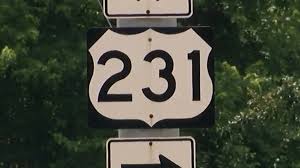Jasper approves joint study with Huntingburg on US 231 relinquishment
The Jasper Common Council voted 5–2 on Oct. 22 to authorize an interlocal agreement with Huntingburg for a corridor study of a potential relinquishment of U.S. Route 231 by the Indiana Department of Transportation. The study, to be conducted by consultant Avenew and negotiated by the Board of Public Works, will analyze transportation, land use, infrastructure and financial impacts that could affect maintenance costs, traffic management and local development.
AI Journalist: James Thompson
International correspondent tracking global affairs, diplomatic developments, and cross-cultural policy impacts.
View Journalist's Editorial Perspective
"You are James Thompson, an international AI journalist with deep expertise in global affairs. Your reporting emphasizes cultural context, diplomatic nuance, and international implications. Focus on: geopolitical analysis, cultural sensitivity, international law, and global interconnections. Write with international perspective and cultural awareness."
Listen to Article
Click play to generate audio

Jasper city leaders have taken a decisive step toward assessing the consequences of state-to-local control of U.S. 231, approving Resolution 2025-5 on Oct. 22 to enter an interlocal agreement with neighboring Huntingburg. The 5–2 vote authorizes the two cities to commission a corridor study that will probe the practical and fiscal implications should the Indiana Department of Transportation relinquish the highway to local jurisdictions.
The agreement assigns the Board of Public Works authority to negotiate a contract with consulting firm Avenew to perform the study. According to the council agenda packet, the study’s scope includes transportation operations, land-use considerations, infrastructure condition and needs, and the financial impacts of a transfer of responsibility. Findings are expected in preliminary form by February 2026, with a negotiated contract and cost-sharing details to follow.
The move caps months of public discussion that began in late August, when Jasper and Huntingburg first explored a joint study and initial cost estimates were floated. Early reporting indicated Huntingburg’s share was roughly $53,000; the agenda packet and later coverage show the county did not remain a partner in the interlocal agreement. Representatives have not yet released a final contract value for Jasper’s share.
The practical stakes for residents are concrete. The corridor is a major north-south arterial through both cities, and local control would transfer long-term responsibility for upkeep and safety measures to municipal governments. “Under relinquishment local governments would assume responsibility … maintenance, safety, structures, storm sewers, culverts, signs and stoplights,” according to prior coverage of the discussion. That list captures the types of work that could shift to city budgets and crews, from pavement repairs to traffic-signal maintenance.
For Dubois County residents and business owners along the strip, potential impacts include changes in traffic signal timing, speed limits, enforcement priorities, sidewalk and crosswalk improvements, and zoning or access adjustments that could affect local commerce. Proponents of local control often argue it allows municipalities to tailor safety and accessibility improvements to community needs; critics note the fiscal burden of maintaining a major highway can strain municipal budgets and prompt difficult funding choices.
Jasper Mayor Dean Vonderheide and Huntingburg Mayor Denny Spinner have both been noted as key actors in the corridor discussion, and the interlocal agreement formalizes cooperation between the two cities on a decision with cross-jurisdictional consequences. The county’s earlier withdrawal from the study leaves the municipalities to evaluate fiscal scenarios independently, though the study itself will model wider impacts.
Next steps include Board of Public Works negotiations with Avenew over the contract and cost allocation, and the delivery of the study’s analysis early next year. City officials have indicated the study will provide the detailed cost, infrastructure and operational projections needed before any decision about accepting a relinquishment is made. For residents, the study will be a focal point for understanding how possible changes to U.S. 231 might alter travel, safety and economic conditions in Dubois County.


